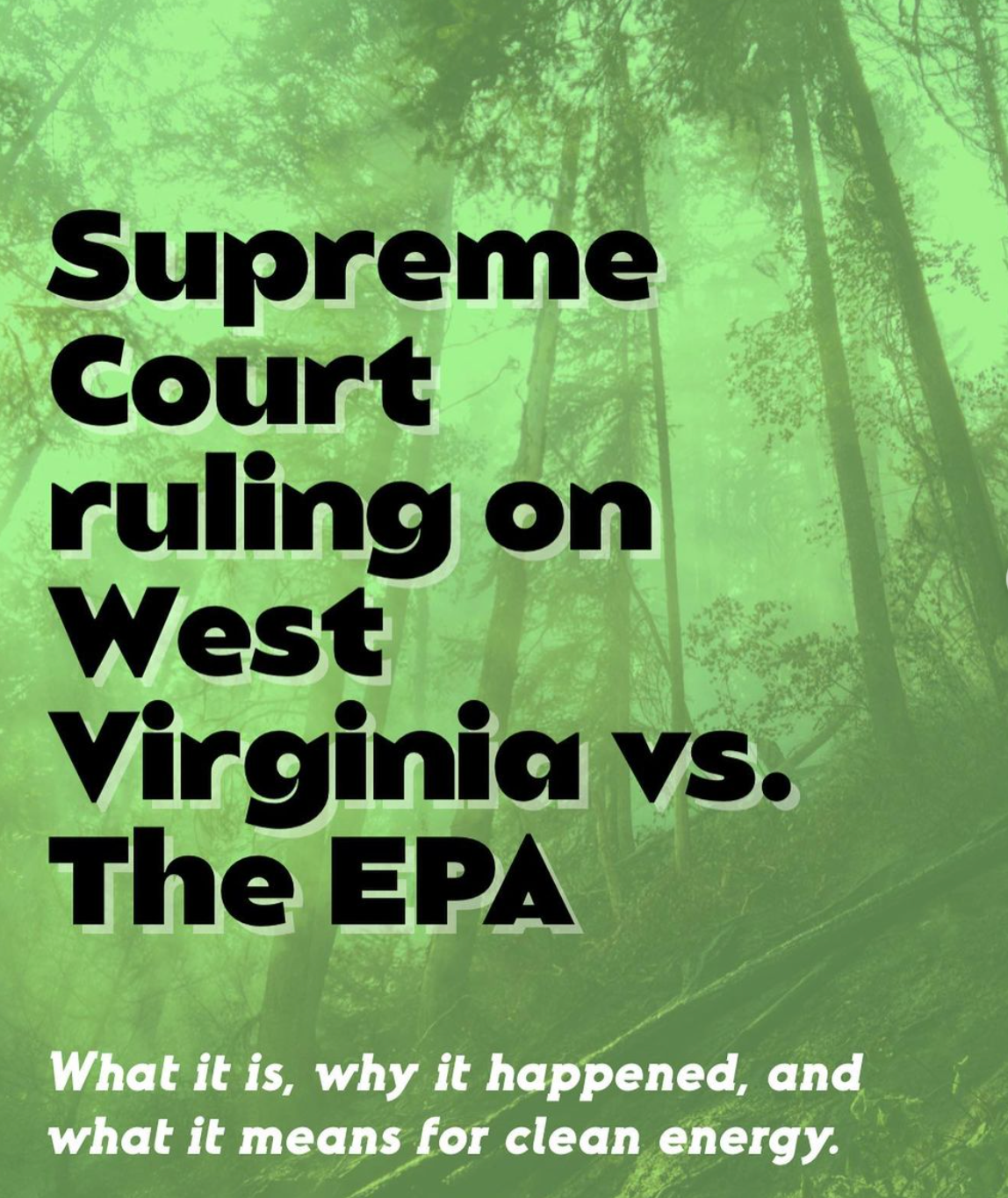What it is, why it happened, and what it means for clean energy.
The Supreme Court finished its session by ruling against the EPA in a case against West Virginia, delimiting the agency’s power to regulate carbon emissions on power plants.
Writing for the 6-3 conservative majority opinion, Justice John Roberts argued “that under what the court has recently called the ‘major questions doctrine,’ neither the EPA nor any other agency may adopt rules that are ‘transformational’ to the economy – unless Congress has specifically authorized such a transformative rule to address a specific problem, like climate change” (NPR, 2022).
The decision does severely inhibit the Environmental Protection Agency’s ability to curb carbon emissions, as well as reach the Biden Administration’s 2035 goal of an emissions-free energy sector.
The main regulatory issue has centered around coal-firing plants which produce 54% of CO2 emissions from the Electricity sector while only producing 20% of electricity for the US in 2020 (EPA, 2020).
Given this ratio, coal is no longer cost-efficient compared with other sources such as natural gas and the increasingly cost-competitive solar and wind industries.
The SCOTUS decision thus leaves most of climate change actions up to Congress and the “free market.”
Despite the decision, coal is likely to continue declining due to global competitiveness, unless it receives subsidies. Many people are being led to believe by corporations that job loss and industry decline are related to EPA regulations, but a Columbia study demonstrated that the major factors are natural gas, renewable energy costs, and decreased global demand for coal (Columbia Center on Global Energy Policy, 2017).
Thus, one of the best things we can do as individuals is to educate each other on the costs of coal and other fossil fuels, becoming informed energy consumers.
Read below for some more action steps:
- For those living in NC, consider participating in one of the NCUC public meetings addressing Duke Energy’s Carbon Plan, challenging the utility to invest in renewable infrastructure rather than natural gas:
- July 11 in Durham
- July 12 in Wilmington
- July 27 in Asheville
- July 28 in Charlotte
- Have conversations with family, friends, and neighbors about the reasons for coal’s decline and why it’s more economic for the U.S. to invest in renewables to be globally competitive. For more conversation info, read the sited Columbia report.
- Try to understand why people in other coal-dependent states want to delay decarbonization: many communities are at the mercy of corporate land ownership, have dependent economies that center around the coal industry, and are at risk of losing economic viability, as well as a sense of purpose and livelihood.
- Do you have any other ideas for individual and community action steps? Comment them below and share this post!👇🏼

